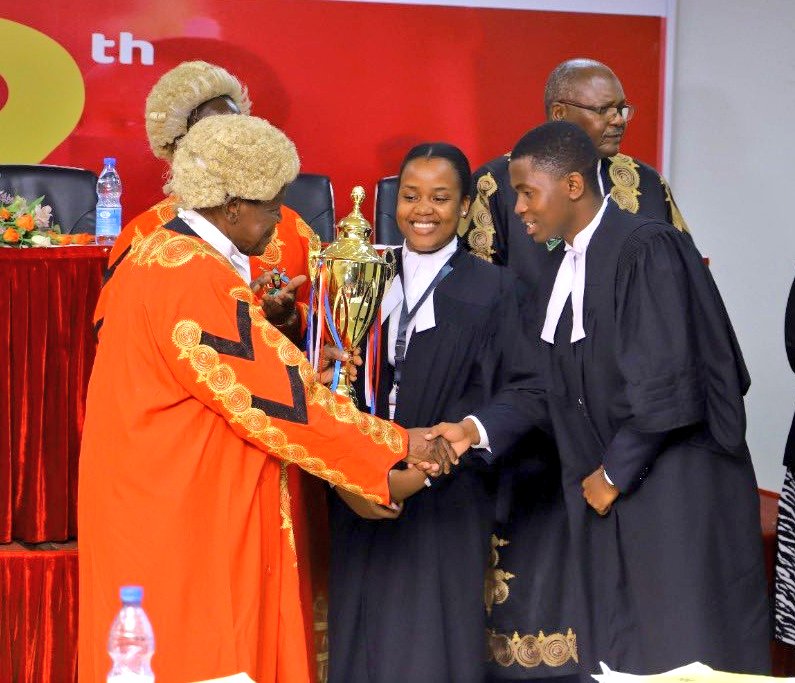” The International Day of the African Child is a time to reflect on the challenges facing children in Africa. One of the most pressing challenges is teenage pregnancy, a serious problem in Africa. Uganda has one of the highest rates of teenage pregnancies in sub-Saharan Africa, estimated at about 25%.”
Clifton
By Clifton Irahuka – Health service provider
Ms. X, a 16 year-old walked into a facility for the first time and was later confirmed to be 4-months pregnant. She came in with neither companion nor sure of who owns the pregnancy. Her family had rejected her and she dropped out of school. Her friends advised her to use some herbs to end the pregnancy. She followed the advise of peers but was later worried after noticing vaginal bleeding, but had no idea on what to do next, which help to seek and where to seek it.
The tears she’s been shedding since she saw the blood were triggered by her recall of how others bullied her on one day when she stained her dress at school. At the time, she had no access to menstrual pads and neither could parents provide. She was in a dilemma. This prompted her to sleep around with older men to earn some money for her survival. Her cry for them to at least use condoms fell on rock-filled ears because they are men, had the money and thus her decision and choice didn’t matter.
The scenario of Ms X is a true reflection of an African girl born in a poor, less literate and rural family who like many others, is burdened with high fertility rate, risky sexual behaviors, peer pressure into early sex, forced into early marriages, lacks education, lacks family support, with a low socio-economic status and low use of contraceptives. Many of them find themselves in such scenarios but with no help. That is the African child!
On June 16 every year, the world marks the International Day of the African Child. This day commemorates the Soweto Uprising, which took place in South Africa in 1976. On that day, thousands of black students protested against the apartheid government. The protests were met with violence, and hundreds of students were killed.
The International Day of the African Child is a time to reflect on the challenges facing children in Africa. One of the most pressing challenges is teenage pregnancy, a serious problem in Africa. Uganda has one of the highest rates of teenage pregnancies in sub-Saharan Africa, estimated at about 25%.
According to UNFPA, one in five girls in Africa will become pregnant before the age of 18. This has a number of negative consequences for girls, including but not limited to increased risk of maternal deaths, reduced educational opportunities, increased poverty and increased risk of sexual violence.
Some of the factors that contribute to teenage pregnancy in Uganda include:
- Limited access to sexual and reproductive health services: Many girls like Ms X in Uganda do not have access to sexual and reproductive health services, such as contraception information and services. This makes it difficult for them to prevent pregnancy, and can also put them at risk of unsafe abortion.
- Early marriage: According to the Uganda Demographic and Health Survey (UDHS, 2016), 19% of girls aged 15-19 are married or with a partner. Many girls lack family support, are under peer pressure to engage in early sex and the outcome is unplanned teenage pregnancy.
- Limited access to education: Girls who do not attend school are more likely to become pregnant as teenagers. 22% of girls who had never attended school were pregnant or had given birth, compared to 12% of girls who had completed secondary school (UDHS, 2016).
- Poverty is another major factor in teenage pregnancy. Girls like Ms X from poor families are more likely to drop out of school as well as experience sexual violence, which puts them at increased risk of becoming pregnant. They experience power imbalance with cross generational men denying them a choice of contraception further engaging is high risk sexual behaviours.
- Gender inequality and cultural beliefs also contribute to teenage pregnancies significantly.
On the International Day of the African Child, we must recommit to ending teenage pregnancy in Uganda and some specific things that can be done to achieve that include:
- Provide access to contraception which is one of the most effective ways to prevent teenage pregnancy. Governments and NGOs can work to increase access to information and use of contraception by making it more acceptable, affordable, and available.
- Provide sexuality education: this is essential for teaching young people about their bodies and how to prevent pregnancy. Governments and schools can work to provide sexuality education that includes information about contraception, sexually transmitted infections, and healthy relationships. This could be age appropriate information
- Address the root causes of teenage pregnancy: Teenage pregnancy is often a symptom of other problems, such as poverty, gender inequality, and lack of education. The duo can work to address these root causes by investing in education, providing economic and entrepreneurial skills and opportunities, and promoting gender equality.
By taking these steps, we can help to reduce the number of teenage pregnancies in Africa and give all children the chance to reach their full potential.
The writer is a Midwife and Sexual Reproductive Health and Rights Advocate.



